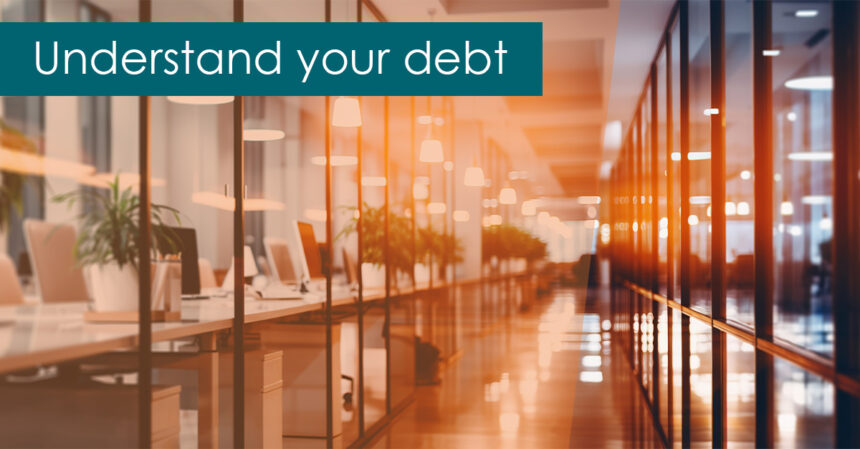The first step in managing debt is to have a clear understanding of what you owe. This involves listing all your debts, including credit cards, loans, mortgages and any other financial obligations. For each debt, note the total amount owed, the interest rate and the monthly payment. This will give you a comprehensive overview of your debt situation and serve as a foundation for developing a tailored debt management plan.
Prioritise your debts
Some debts carry higher interest rates to others, causing your overall total debt to increase more rapidly. Prioritising your debts allows you to focus on those with the highest interest rates first.
Budget for your debt repayment
You need to be realistic when budgeting for your debt repayment. Your budget should include your income, essential expenses (e.g. rent, utilities and groceries), and allocations for debt repayments.
To help you with your budgeting, identify areas where you can reduce spending and reallocated those funds towards your debt repayments.
Debt consolidation
If you’re juggling multiple debts, consolidation may be a viable strategy. This includes combining debts into a single loan, ideally with a low interest rate, therefore simplifying your payments and reducing the amount of interest you pay.
Whilst considering debt consolidation, be sure to understand the terms of the consolidation loan, as extending the loan term could result in paying more interest over time.
Negotiating with creditors
If you’re unable to meet your debt repayments, communicate directly with your creditors, as many are willing to negotiate terms. These can include reduced interest rates or extended payment periods to help you manage payments.
Using a debt management plan (DMP)
A DMP can be offered by financial advisers or debt management companies to help you repay your debts. Make sure you are aware of any fees involved in a DMP, and how it may affect your credit score.
Considering an individual voluntary arrangement (IVA)
If you’re facing significant debt, and it cannot be managed through the above strategies, IVA may be an option for you. This is a formal agreement between you and your creditors, mediated by an insolvency practitioner, to pay off an amount of your debts over a fixed period, usually five years. It is important for you to carefully understand the implications of IVAs and how they can affect your credit rating, as well as current and future employment.
Debt relief orders (DROs)
If you owe less than £30,000, have minimal spare income, and do no own your home, a DRO can halt payments towards debts for a 12-month period. During this time, you must adhere to certain restrictions, but are released from this after the 12-month period.
Essential payments are not covered by the DRO and must still be met.
Bankruptcy: your last resort
Bankruptcy should be considered at a last resort, due to its severe and long-term impact on your credit history. Whilst declaring bankruptcy can release you from debts, it is likely to restrict your financial freedom, affecting your ability to obtain credit.
Don’t hesitate to seek professional financial advice when facing complex financial decisions or when planning for significant financial goals. One of our qualified financial adviser can provide personalised advice tailored to your unique financial situation, helping you make informed decisions that support your financial health and stability.
If you would like to discuss anything within your own context further, please do not hesitate to get in touch with a member of our team on 01788 539000 or email us at [email protected].
